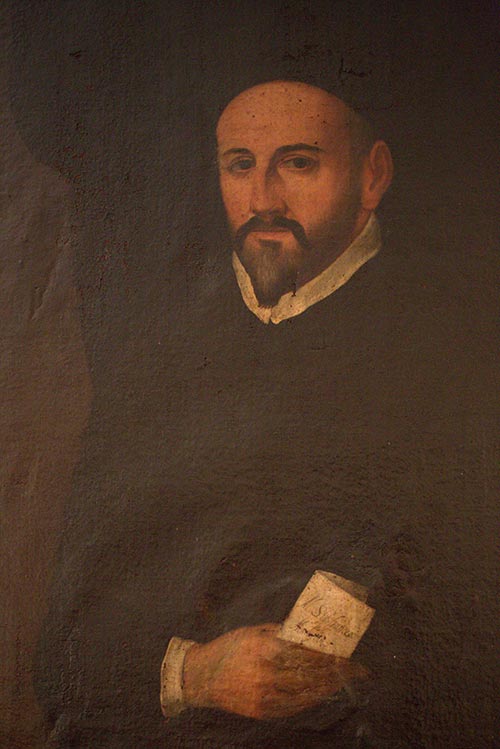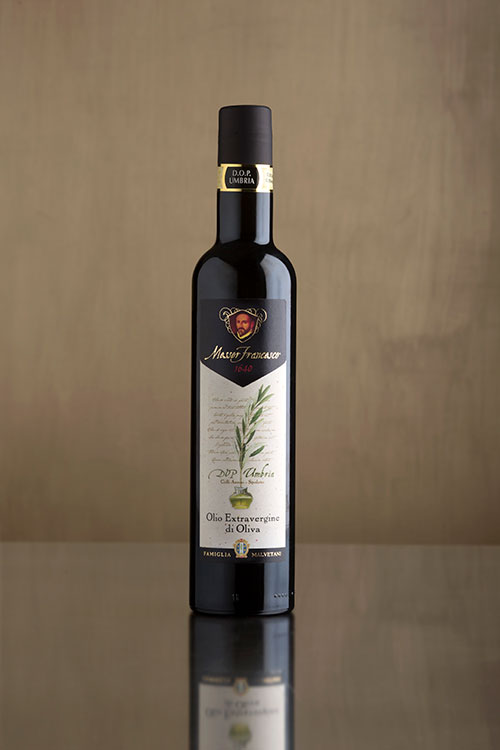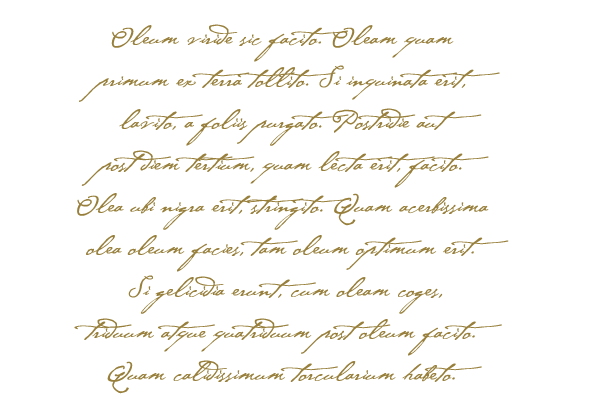The EVOO “Messer Francesco 1640” is the most luminous achievement of the Malvetani family’s century-old passion for healthy and superior goods.

Who was Messer Francesco Malvetani
Messer Francesco Malvetani graduated in Padua on October 6, 1640, at the Universitas Artistarum with degrees in philosophy and medicine. He was "Consiliarius" of the Roman Nation and later on of Lombarda Nation. Having held such offices, he acquired the right to affix the family “coat of arms” on the wall of Aula Magna (Great Hall) and on other walls of the “Bo Palace”, historical seat of University of Padua since 1539
He was a physician at the Hospital of Santo Spirito in Sassia from 1655 to 1681 and supervisor of the San Bartolomeo’s lazzaretto. Francesco was also a passionate agronomist and he served as the personal physician to Cardinal Barberini and other Roman church officials.
He died at the impressive age of 96 years old.

The EVOO "Messer Francesco 1640"
The Messer Francesco Extra Virgin Olive Oil, produced in a limited series and variable quantities from year to year depending on seasonal trends, is dedicated to this knowledgeable man who, on the basis of his studies, intuitively perceived the beneficial qualities of olive oil centuries before it would become a pillar of the modern Mediterranean diet.
When the season allows it, the harvest initiates on October 6, the day of Francesco’s graduation. The olives are handpicked and, after careful selection, are transferred to the family oil mill where they are malaxated and pressed the same day. The oil is produced through a process of cold extractionso as to maintain, as much as possible, the precious characteristics of the freshly picked olives.
Messer Francesco is the most luminous achievement of the Malvetani family’s century-old passion for healthy and superior goods.

WHAT IS WRITTEN ON THE SCROLL OF THE LABEL?
Printed on the background of the label "Messer Francesco 1640" we can see an extract from the chapter LXVI of De Re Rustica by the Latin author Marco P. Catone, written between 164 BC and 154 BC. Francesco Malvetani used to read De Re Rustica, along with other agricultural and botanical essays written between 1200 and 1600, taking notes of the ideas he considered more interesting. Today, some of his manuscripts are still preserved in the family archives.
"Oleum viride sic facito. Oleam quam primum ex terra tollito. Si inquinata erit, lavito, a foliis purgato. Postridie aut post diem tertium, quam lecta erit, facito. Olea ubi nigra erit, stringito. Quam acerbissima olea oleum facies, tam oleum optimum erit. Si gelicidia erunt, cum oleam coges, triduum atque quatriduum post oleum facito. Quam calidissimum torcularium et cellam habeto."
“Green oil is made like this: Pick the olives off the ground as soon as possible, and if they are dirty, wash them and clean off the leaves and dung. Mill them on the next day or three days after having been harvested[...] .The more bitter the olives, the better the oil will be […]. If frost has fallen on the olives, mill them three or four days after gathering. Keep as high a temperature as you can in the pressing-room and in the cellar”. M.P. CATO



